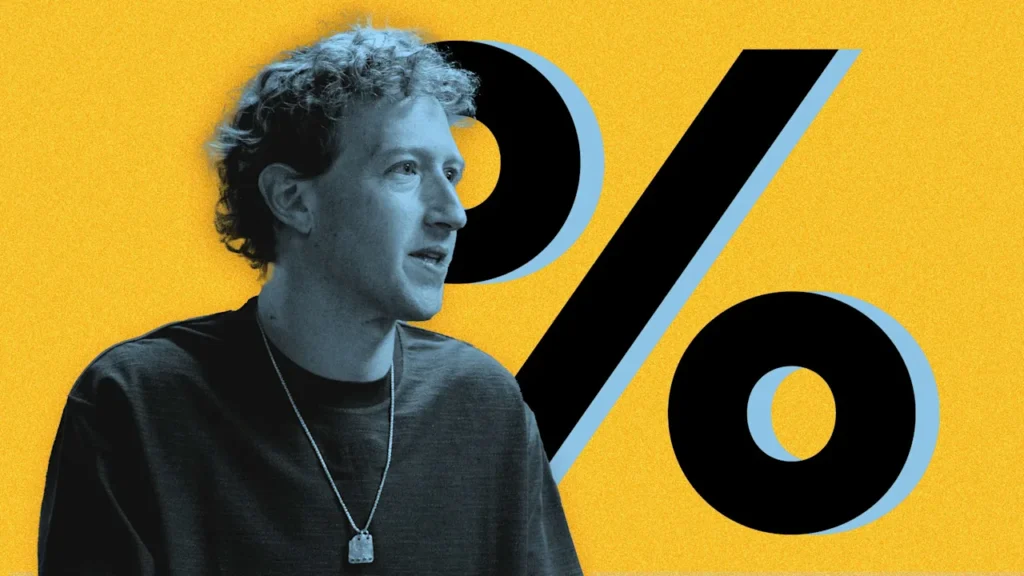
Imagine you’re Mark Zuckerberg. What does an average day at work look like for you?
Most people with experience in management would probably guess the Facebook boss spends his working hours in an endless series of meetings. Maybe he even schedules his time down to the minute like his fellow billionaires Bill Gates and Elon Musk.
But when Zuckerberg sat down for a fireside chat with Stripe co-founder John Collison recently and described his productivity system, it looked nothing like the overscheduled meeting mania many leaders suffer through. Instead, Zuckerberg claimed favors an alternate approach to productivity (and sanity) favored by many other superachievers, from Google executives to Albert Einstein.
It’s called the 80% rule.
Why Mark Zuckerberg avoids one-on-one meetings
The relevant portion of the conversation kicks off when Collison asks Zuckerberg how he organizes his time “to actually spend time on the things that you think are valuable for the company.”
It’s a key question faced not just by the CEOs of multibillion-dollar behemoths but by everyday small-business owners and middle managers too. Which makes Zuckerberg’s answer even more fascinating.
While he talks to his team informally frequently—“I talk to all these people more than they want to talk to me,” he jokes—Zuckerberg generally tries to avoid standing, regular one-on-one meetings.
Instead, he tells Collison, “I try to generally keep a bunch of time open” in his schedule.
Why? “Stuff is pretty dynamic and you wake up in the morning and you’re like, ‘Okay, I need to work on these three things today.’ I want to make sure that I have a block of time where I can go do that,” he explains.
Slack in his schedule allows Zuckerberg to be more agile, but it also helps him keep an even keel mentally.
“I get really frustrated and in a bad mood if my whole day is scheduled and there’s a thing that I know is really important and I don’t get time to do it because I’m sitting in other things that are not the most important thing to be doing,” he complains. “You have too many days like that in a row and I just like explode.”
Which is why he’s such a firm believer in keeping “a meaningful amount of your time open.” That way we can have space for reflection and self-development and respond to issues as they rise.
Googlers call Zuckerberg’s approach the 80% rule
Zuckerberg may use the vague phrase “keep a meaningful amount of time open” when describing his approach to productivity. But there is a more formal and precise way to think about this principle.
Laura Mae Martin, Google’s in-house productivity coach, helps the search giant’s execs make the best use of their time. She calls this idea the 80% rule. It states you should schedule only about 80% of your days. Leave 20% open to absorb whatever craziness comes up.
“I always tell people, shoot to under-commit because you end up then committing at the right level. Shoot to that 80%, and that’s really where you end up being involved in the right amount of things,” Martin explained on the HBR IdeaCast.
Superachievers and productivity experts swear by the 80% rule
Data obsessed Google might have formulated a precise rule for the trick of leaving slack in your schedule, but a variety of superachievers have, like Zuckerberg, intuited and applied this basic logic over the years.
Einstein was famous for leaving big chunks of time in his schedule open to tinker and think. But the approach doesn’t just work for dreamy scientists. Steve Jobs was another superachiever with a legendarily open schedule.
Various productivity experts have come to the same conclusion too. More than 20 years ago, software engineer Tom DeMarco wrote a whole book arguing for what is basically the 80% rule. Titled Slack: Getting Past Burnout, Busywork, and the Myth of Total Efficiency (Crown Currrency), it explains that when your days are too full you can’t absorb the inevitable shocks and surprises that arise. You end up getting less done in the long run than if you kept a looser schedule.
Sociologist Christine Carter is another author who wrote a book advocating for “strategic slacking.” Journalist Oliver Burkeman has a number of bestsellers focused on less rigorous scheduling.
“I don’t embark on each day as if on a tightrope walk, needing everything to go exactly right in order for me to make it through the plan,” he writes.
What percentage of your day is scheduled?
Zuckerberg might not call his approach to scheduling the 80% rule, but the underlying principle is identical. And there are advantages to using Martin’s more precise formulation to describe the idea.
First, it’s catchy. The 80% rule is more memorable than just saying, ‘Hey, um, maybe it’s like a good idea to leave some meaningful time open in your schedule.”
It’s also a exact target to aim for. With a hard number in hand, leaders can review their calendars and make adjustments. Which is just what Zuckerberg’s recent interview should probably nudge you to do. What percentage of your days are currently booked up in advance?
If the Meta boss can manage to clear enough space to have time for strategic thinking and quick pivots, certainly you can too. A boatload of experts suggests you’ll get more done if you schedule less.
—By Jessica Stillman
This article originally appeared on Fast Company‘s sister website, Inc.
Inc. is the voice of the American entrepreneur. We inspire, inform, and document the most fascinating people in business: the risk-takers, the innovators, and the ultra-driven go-getters that represent the most dynamic force in the American economy.

